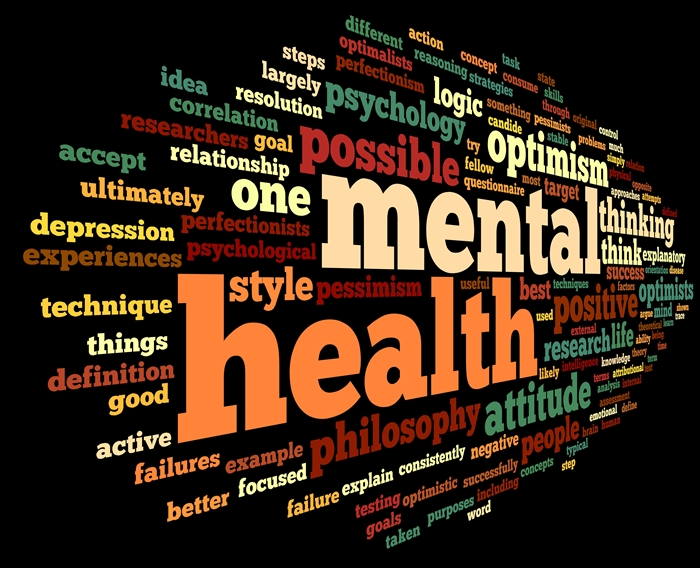In this article, we discussed the positive and negative impact of technology on mental health, meaning of mental health. We also talked about technology.
Definition
Mental health includes our emotional, psychological, and social well-being. It affects how we think, feel, and act, and helps determine how we handle stress, relate to others, and make choices.
Mental health is important at every stage of life, from childhood and adolescence through adulthood. Over the course of your life, if you experience mental health problem your thinking, mood, and behavior could be affected.
Technology is the application of scientific knowledge to the practical aims of human life or, as it is sometimes phrased, to the change and manipulation of the human environment.
The use of technology has been linked to a range of mental health issues, including anxiety, depression and sleep disorders. The constant barrage of notifications and the pressure to stay connected can lead us to feel overwhelmed and burned out.
Impact of Technology on Mental Health
Below are some positive impacts of Technology on mental health.
Support and Information Access
Technology is mandatory for mental health obstacle-facing. The online sources give you access to information about mental health issues, the treatment available, and what works to fight them.
Technology has reflected through online support groups and satisfying apps that make it easy for a person in need to get social support to which they are entitled.
Enhancing Communication and Relationships
By feature of technological breakthroughs, we are becoming capable of being close with those people we care about no matter how far they are. Online chats, instant messaging, and social media shorten the distance between people who haven’t seen each other for a long time, making it easier to make real connections.
As a result, the probability of loneliness decreases. Technology offers positive social opportunities as well due to the scope of online and cyber relationship-building or collaborative efforts via multiparty gaming, joint projects, or shared interests.
Increasing Mental Health Education
The technology platforms can be applied for spreading awareness as well as education programs on mental health. Mental health inequities are often intensified by poor access to health information.
Therefore, the internet can be used as a forum, social media initiative, or educational website to help people better understand the nature of mental health disorders and reduce the stigma around them.
Encourage Physical Activity and Mindfulness
Technology could relax the body and the mind by giving all the useful options that enhance mental well-being. Modified workout plans and performance tracking functions of health apps can motivate one to exercise and to start adopting a healthy lifestyle.
Besides mindfulness apps, meditative applications provide cognitive skills exercise which helps to fight stress and stay healthy. The apps work for both me and my friend because of the excellent quality of mental awareness which helps to raise mental rationality and develop emotional steadiness as a daily routine.
Negative Impacts of Technology on Mental Health
The negative effects of technology on mental health involve mass-made products, which are most often responsible: for posting videos and pictures on social media. This is the result of misleading, hate speech, and harassment which stands on the one hand, and loneliness, and depression on the other which are based on the numerous researches that took place on this issue.
Misinformation and Scam
In today’s digital world, rapid technical breakthroughs make it hard to tell fact from fiction. The Edelman Barometer 2020 found that 61% of respondents thought technology was changing too rapidly and 57% thought digital media platforms were full of untrustworthy material.
Isolation and Loneliness
While technology is capable of connecting people, extreme usage of it alone can be ironic in the sense that might easily lead to such feelings of loneliness and isolation. The all-time low of digital devices cuts us off in the social world, making people prefer online connections with other people over offline touch.
Numerous researches prove that this kind of heavy usage leads to the feeling of loneliness which is stressful and brings about the symptoms of mental problems.
Sleep Disturbances
Technical time before bedtime is damaging, it alters sleep schedule and ultimately affects mental health. This kind of screen interferes with melatonin production by emitting blue lights. Melatonin production at night is suppressed by blue light causing an issue with falling asleep (namely because of the research results published in Proceedings of the National Academy of Sciences).
Insufficient and unrestful sleep may be connected to irritability, anxiety, and other mental health problems or even neurological troubles. As suggested by the JCSM research, there is a greater chance of feeling depression and anxiety among insomniacs.
Increased Stress and Anxiety
Constant connectivity through technology can contribute to stress and anxiety. The pressure to respond to messages immediately and stay updated on social media can lead to feelings of being overwhelmed.
A study published in the journal Computers in Human Behavior found that the fear of missing out (FOMO) on social media was significantly associated with higher levels of anxiety and stress.
Conclusion
The recent outbreak of technology has literally changed the way in which normal American life is considered. On the one hand, there is a huge range of negative and positive effects of technology on the mental health of advantages, yet on the other hand, there is a close shadow of the possible risks.
Those who feel that technology controls them and wonder about its effects on them may consider lowering the time they use gadgets and spending a decent time away from the screens to understand how they feel with and without these tools. This kind of self-reflection can provide valuable insights into the effects of technology on mental health.

